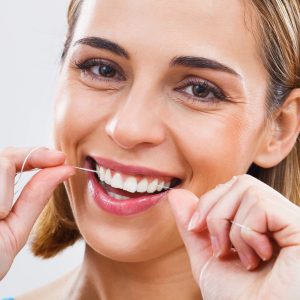Teeth whitening is a form of dentistry and should only be performed by a dentist or another regulated dental professional, such as a dental hygienist or dental therapist, on the prescription of a dentist.
Some beauty salons offer teeth whitening, but this is illegal if there's no dental professional present, and it may put your oral health at risk.
You can also buy DIY home teeth whitening kits but these may also carry risks.
What happens during teeth whitening at the dentist?
If you have teeth whitening, you will need to make several visits to the dental surgery over a couple of months.
The dentist will take an impression of your teeth to make a mouthguard and will instruct you how to use it with a bleaching gel. Then, using your mouthguard at home, you regularly apply the gel for a specified period of time over two to four weeks. Some whitening gels can be left on for up to eight hours at a time, which shortens the treatment period to one week.
Another type of teeth whitening system that a dentist can provide is called laser whitening, which is also known as power whitening. This is where a bleaching product is painted onto your teeth and then a light or laser is shone on them to activate the whitening. Laser whitening takes about an hour.
Can any dentist whiten teeth?
Yes, provided they are registered with the
General Dental Council. Registered dental therapists and dental hygienists can also carry out teeth whitening on the prescription of a dentist.
To find out if a dental professional is registered with the GDC you can check online or call 0207 167 6000.
What about home kits and beauty salons for teeth whitening?
Only go to a registered dental professional for teeth whitening because whitening by people who aren't qualified, for example in beauty salons, is illegal. Home kits also carry risks.
What are the risks of home kits and salon teeth whitening?
Some home kits don't contain enough of the whitening product to be effective. More generally, if a dental professional is not doing the whitening, the mouthguard provided may not fit properly so some of the bleaching gel may leak out onto your gums and into your mouth, causing blistering and sensitivity.
Where teeth whitening is carried out in beauty salons by staff without any training or dental qualifications it not only carries a risk to your oral health, but is also illegal.
Can you have your teeth whitened on the NHS?
You can only have your teeth whitened on the NHS if there's a medical reason for it. For example, this might be to lighten teeth that have discoloured because the nerve has died.
Otherwise, teeth whitening by a dentist or other dental professional can only be done privately because it's considered to be a cosmetic treatment. Costs vary and, as a general rule, laser whitening is more expensive than professional bleaching.
How do you go about getting teeth whitening?
Your dentist will advise you whether whitening is right for you. It may be that teeth whitening isn't suitable, for example if you have
gum disease or crowns.
What questions should I ask the dentist before going ahead?
Don't be afraid to ask simple questions about the types of whitening treatment available, what results you can expect and whether the work is guaranteed for a certain amount of time. Also, ask them what they consider to be the risks in your particular case, for example increasing sensitivity of the teeth.
Try to talk to other people who have had the same treatment or visit another dentist for a second opinion until you feel confident. Always ask for a written treatment plan and price estimate before going ahead.
Is teeth whitening permanent?
No, teeth whitening isn't permanent. It can last from a few months to up to three years, but this varies from person to person. Generally, the whitening effect won't last as long if you smoke or drink red wine, tea or coffee, which can all stain your teeth.
Will teeth whitening work on false teeth?
No. Teeth whitening won't work on dentures, crowns, fillings or veneers.
What are the risks of teeth whitening?
No matter what treatment you use, there is a chance your gums can be sensitive to the chemicals used in teeth whitening, especially if you already have sensitive teeth. There's also a chance of burns to gums and some of the whitening kits used at home can harm tooth enamel.
http://www.nhs.uk/Livewell/dentalhealth/Pages/teeth-whitening.aspx

 You will do a lot of good to your teeth by limiting your coffee and soda sessions. Coffee causes staining of the teeth.
You will do a lot of good to your teeth by limiting your coffee and soda sessions. Coffee causes staining of the teeth.


